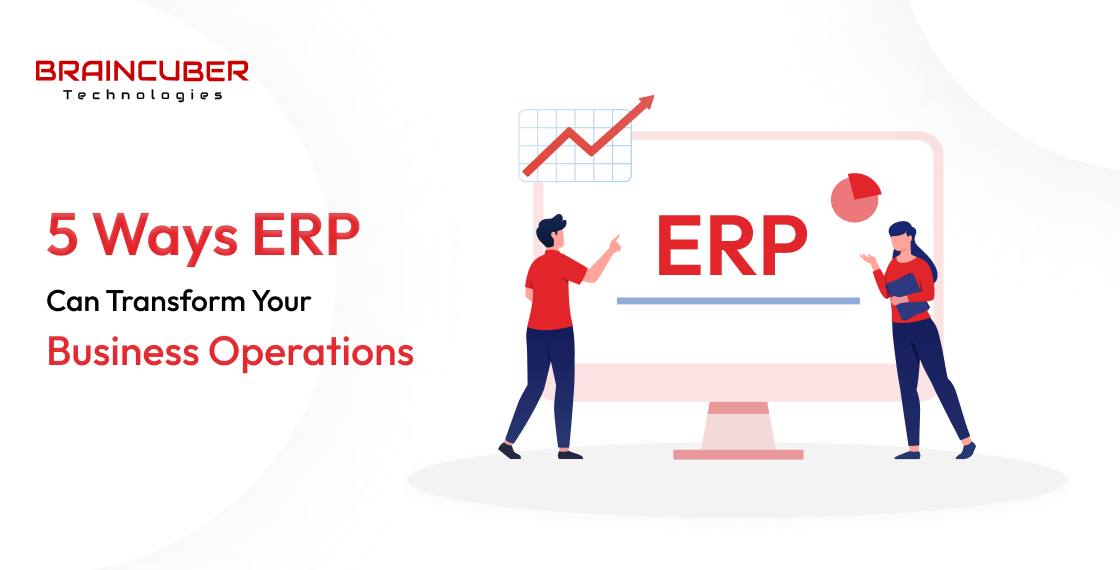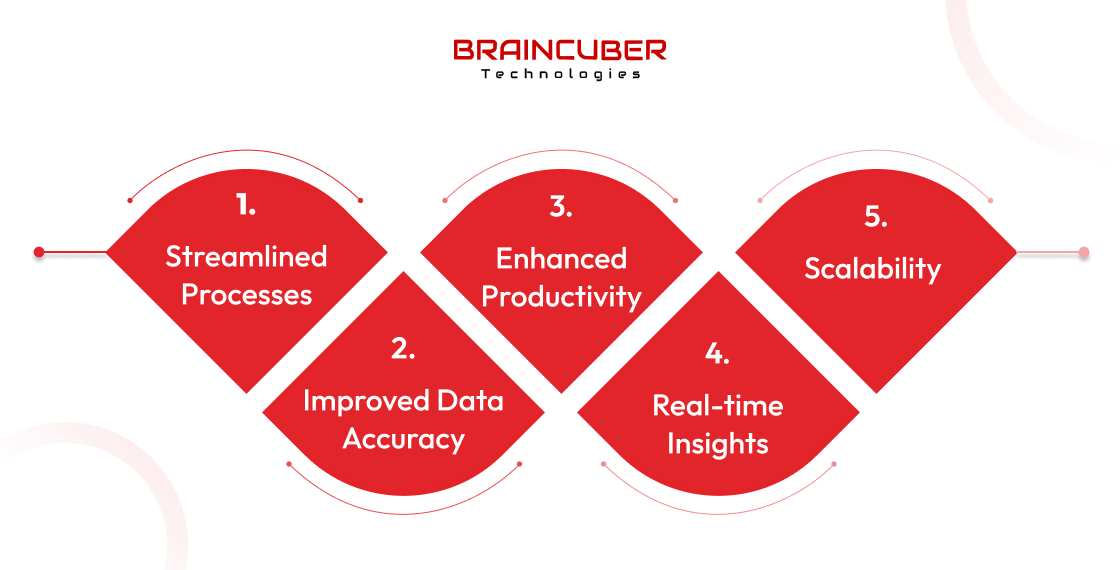Engagement Module
Next Gen AI Solution
Maintenance
Designing
Consultant
Industries
5 Ways ERP Can Transform Your Business Operations

In today’s fast-paced business environment, efficiency and streamlined processes are key to staying competitive. One powerful tool that can help achieve this is an Enterprise Resource Planning (ERP) system. ERP systems integrate various business functions into a unified platform, providing real-time insights and enhancing productivity. Here are five transformative ways ERP can elevate your business operations:

1. Streamlined Processes
One of the most significant benefits of an ERP system is its ability to streamline business processes. By integrating various functions—such as finance, HR, manufacturing, and supply chain—into a single system, ERP eliminates the need for disparate software solutions. This integration ensures that all departments work with the same data, improving workflow efficiency and reducing errors. For instance, a sales order entered in the ERP system can automatically trigger inventory checks, production schedules, and shipping logistics, all within the same platform.
2. Improved Data Accuracy
Data accuracy is crucial for making informed business decisions. ERP systems centralize data collection and management, ensuring that information is consistent and accurate across the organization. This centralized database reduces the risk of data duplication and discrepancies, leading to more reliable reporting and analytics. For example, finance teams can trust that the sales data they use for forecasting is up-to-date and accurate, thanks to the ERP system’s real-time data integration.
3. Enhanced Productivity
ERP systems automate routine tasks, freeing up your team to focus on more strategic activities. Automation reduces manual data entry, minimizes human error, and speeds up business processes. This increase in efficiency allows employees to dedicate more time to activities that drive growth, such as product development, customer service, and strategic planning. For instance, automated invoice processing in an ERP system can significantly reduce the time spent on manual data entry and reconciliation.
4. Real-time Insights
Access to real-time data and analytics is a game-changer for businesses. ERP systems provide real-time visibility into key performance indicators (KPIs) and business metrics, enabling quick and informed decision-making. With dashboards and reporting tools, managers can monitor business performance, identify trends, and respond swiftly to changing market conditions. For example, real-time inventory tracking helps businesses avoid stockouts and overstock situations, optimizing inventory levels and reducing costs.
5. Scalability
As your business grows, your ERP system can grow with you. ERP solutions are designed to be scalable, allowing you to add new users, modules, and functionalities as needed. This scalability ensures that your business operations remain efficient and effective, even as you expand into new markets or introduce new products. For instance, an ERP system can support multi-currency transactions and international supply chain management, making it easier to manage global operations.
By integrating an ERP system into your business, you can streamline processes, improve data accuracy, enhance productivity, gain real-time insights, and scale your operations effectively. The benefits of ERP are clear, but implementing such a system can be complex. That’s where Braincuber comes in.
At Braincuber, we specialize in providing tailored ERP solutions that meet the unique needs of your business.
Our team of experts works closely with you to ensure a smooth implementation and ongoing support, so you can focus on what you do best-growing your business.




